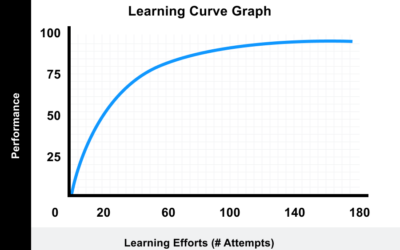Startup companies require capital to expand their operations. Before an initial public offering (IPO), additional funding rounds—from Series A to Series G—come after the seed funding. Each funding round has a unique set of objectives and requirements, ranging from the amount of investment to the size of the startup.
This article will concentrate on Series C funding. Here are the definitions, goals, and requirements for series C funding!
What is Series C funding?
This is the essence of it. When a company has reached maturity, it typically receives Series C funding.
Series C funding is typically used for business development, domestic and international expansion, and the acquisition of other startups. In addition to venture capitalists, private companies and banks are eager to invest in Series C funding. At this stage, funding is typically between US$ 25 million and US$ 100 million.
After Series C, there are Series D through Series G. Each funding stage has distinct objectives and is tailored to the needs of the startup. The startup will eventually go public and be listed on a stock exchange. This phase is referred to as the initial public offering (IPO).
Also read: Series A Funding and the Impact for Startup Companies
Series C Funding Objectives

Series C Funding Objectives (Source: Freepik).
As mentioned previously, Series C funding is typically obtained by more mature startups, as evidenced by the growth of their businesses.
Here are several Series C funding objectives for startups:
1. Product development
Developing a high-quality product cannot be done at random. It requires research, repeated trials, and even the addition of specialized human resources. This necessitates a substantial amount of funding, and Series C funding is one way to support the process.
2. Beating competitors
Companies almost inevitably face competition. With the assistance of venture capital or angel investors, startups can successfully enter a market devoid of competitors.
However, if a significant competitor exists, it is only possible to compete with superior resources and sufficient funding.
3. Business acceleration
With sufficient funding, startups can grow more quickly and generate greater profits. Increasing the quality and quantity of human resources to make them more productive and efficient, for instance, ultimately aids startups in reaching their objectives more quickly.
Also read: Understanding Series B Funding for Startups and The Example
Series C Startups in Indonesia

Series C Startups in Indonesia (source: Freepik)
Several startups in Indonesia have received Series C funding, including:
1. e-Fishery
e-Fishery is a startup whose goal is to revolutionize aquaculture. This company, founded in 2013, assists fish and shrimp farmers in increasing their productivity and establishing a safe, sustainable, and equitable environment for them.
Additionally, e-Fishery offers high-quality, nutrient-dense fish and shrimp products from local farmers. In January 2022, e-Fishery received Series C funding of $90 million. Temasek, Softbank Vision Fund 2, and Sequoia Capital India led the investments. With this funding, e-Fishery intends to enhance its platforms and services, bolster its digital products, and become the largest digital “cooperative” for fish and shrimp farmers. E-Fishery also intends to expand regionally by focusing on the top 10 aquaculture-producing nations, including India and China.
2. Halodoc
Since the COVID-19 pandemic hit Indonesia in 2020, health technology startups such as Halodoc have been quite popular. In 2021, Halodoc announced a Series C funding round of $80 million, led by Astra with participation from several other investors, including Temasek, Telkomsel Mitra Innovation, Novo Holdings, Acrew Diversify Capital Fund, and Bangkok Bank.
The funds will be used to increase Halodoc’s market penetration within the healthcare industry and enhance the user experience through technology.
Also read: Decacorn Startup: The Definition and Examples
3. Deliveree
Deliveree is a popular marketplace for trucking and delivery services in Southeast Asia. It operates in Thailand, the Philippines, and Indonesia.
Deliveree will use the new funding to enhance the company’s capabilities, particularly in all-sized business services, by adding a container freight option to its market and by expanding its market nationally in its operating countries.
These are the definitions, benefits, and examples of Series C-funded startups. Series C funding is primarily used for expansion and is only awarded to startups with sufficiently mature organizations.



